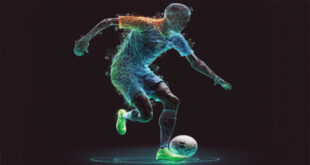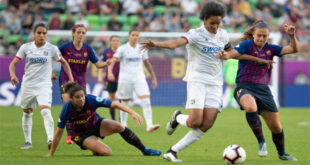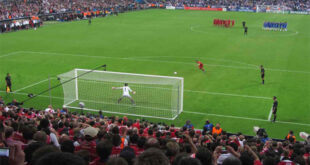Institutional theory, now a dominant approach in sport management research, is used to explore the relationship between sport organizations and their environment, highlighting how social, political, and economic forces shape practices within sport. This special issue’s contributions aim to bridge the gap between sport management and broader management studies, advancing institutional theory. The papers suggest that sport management can both …
Read More »Sport
Sport-related concussion in soccer
A concussion is a sudden, temporary change in consciousness caused by traumatic biomechanical forces impacting the brain, either directly or indirectly (Khurana and Kaye, 2012). Sport-related concussions (SRCs) have become a growing concern, particularly in soccer, which has higher concussion rates compared to other sports (Pierpoint and Collins, 2021). For example, NCAA soccer athletes have concussion rates of 0.28 (men) …
Read More »The effect of fresh and used ankle taping on lower limb biomechanics in sports specific movements
Ankle injuries are common among athletes, often leading to breaks in sports participation. These injuries range from simple sprains to chronic instabilities and cartilage loss, with lateral ankle sprains being the most prevalent. Recurrent sprains can sideline athletes for extended periods or end their careers. Ankle taping is a widespread method to prevent such injuries, as it reduces peak ankle …
Read More »Expected possession value of control and duel actions for soccer player’s skills estimation
Abstract The paper presents enhancements to the Expected Possession Value (EPV) model for soccer, addressing challenges such as selection bias. The improved model places greater weight on events leading up to a shot (decay effect), accurately incorporates possession risk, and evaluates individual players’ ability to win duels. Using these improvements, the model predicts players’ performance for the upcoming season, considering …
Read More »Proprioceptive training methods (PTM) in female soccer players
This systematic review aims to explore the impact of proprioceptive training methods (PTM) on female soccer players, as previous studies have focused mainly on men’s soccer. The review seeks to address the gap in research and consolidate the findings regarding the effectiveness of PTM in women’s soccer. Proprioception refers to the central nervous system’s sensitivity to feedback from bones, joints, …
Read More »An empirical assessment of the influence of digital transformation on sports corporate sustainability
The trend of digital transformation is essential for the sustainable development of sports enterprises within the emerging digital economy. However, there’s a lack of empirical studies on how digital transformation impacts the sustainability of sports organizations at the micro level. This study uses a sustainable growth dynamic model to analyze 48 sports corporations listed in China from 2012 to 2021. …
Read More »Physical activity and mental health
Physical activity is vital for treating and preventing physical diseases and certain psychiatric conditions like depression and anxiety. Yet, alongside its benefits, it can also lead to mental health issues such as excessive exercise and overtraining syndrome. Despite increasing research, the exact mechanisms behind the positive and negative impacts of exercise on mental health remain unclear. This article reviews the …
Read More »European voluntary sport clubs enabling and constraining effects on refugee social inclusion
European governments increasingly rely on voluntary sport clubs (VSCs) for refugee social inclusion amidst the influx of Ukrainian refugees. A review framed by Bronfenbrenner’s model and DeLuca’s spectrum reveals that VSCs’ success hinges on committed individuals, organizational culture, recognition of refugees’ strengths, and cross-sectoral collaborations. Effective refugee social inclusion demands support, resources, intercultural education, and nuanced understanding within VSCs. European …
Read More »The conceptualisation and measurement of mega sport event legacies
This paper examines the long-term effects of mega sports events, addressing challenges in measuring and forecasting their legacy. It introduces a bottom-up approach to identify event legacies, encompassing changes in infrastructure, knowledge, image, emotions, networks, and culture, which alter the host city’s location factors. The study emphasizes the significance of tourism legacy among the benefits and costs associated with the …
Read More »An investigation into the effect of audiences on the soccer penalty kick
Audiences exert significant influence on the behaviors of those being watched, as evident in professional soccer matches where crowd reactions can reach up to 120 dB. The presence of a home audience is linked to the home team advantage effect, enhancing motivation and potentially biasing referee decisions. While research confirms the positive impact of home audiences on team performance, their …
Read More » Canadian Academy Discover, Publish, Thrive
Canadian Academy Discover, Publish, Thrive









